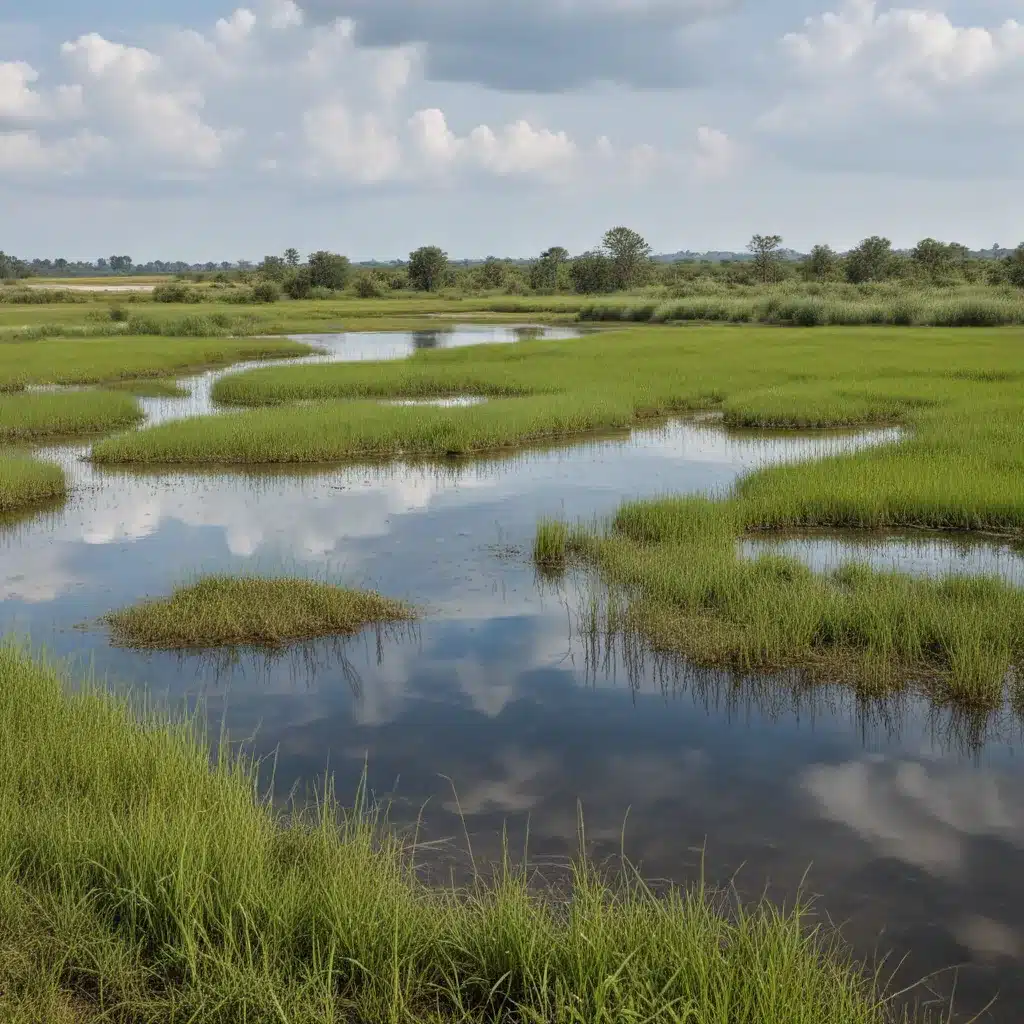
The Vital Role of Wetlands in Combating Climate Change
Wetlands are among the most valuable and yet threatened ecosystems on our planet. These unique habitats, comprising marshes, swamps, bogs, and other water-saturated areas, play a crucial role in regulating the water cycle, sequestering carbon, and providing essential habitat for diverse flora and fauna. However, as the world grapples with the mounting challenges of climate change, the future of these vital resources hangs in the balance.
Climate change is a water crisis, and the health of our wetlands is inextricably linked to the well-being of our communities and the planet. As extreme weather events become more frequent and intense, the need to safeguard these natural resources has never been more pressing. Wetlands serve as natural buffers against floods, filter water, and support the livelihoods of millions worldwide. Their preservation is not only an environmental imperative but also a matter of social and economic security.
The Alarming Decline of Wetlands
Across the globe, wetlands have been vanishing at an alarming rate. According to the United Nations, a staggering 85% of the world’s wetlands have been lost since the 1700s, with the majority of this destruction occurring in the last century. This devastating trend has had far-reaching consequences, both for the environment and for the communities that rely on these resources.
The primary drivers of wetland loss include urbanization, agricultural expansion, and resource extraction. As land is converted for human use, these fragile ecosystems are often the first to be sacrificed, with devastating impacts on biodiversity and ecosystem services. The situation is particularly dire in regions like California, where managed wetlands provide critical habitat for migratory birds and other wildlife, yet face increasing pressure from groundwater management policies.
Wetlands as Nature-Based Solutions to Climate Change
Recognizing the vital role of wetlands in the fight against climate change, international efforts have emerged to preserve and restore these valuable ecosystems. Wetlands are increasingly viewed as nature-based solutions – natural assets that can be leveraged to address the environmental challenges we face.
Wetlands are remarkable carbon sinks, with the ability to sequester and store vast amounts of carbon dioxide from the atmosphere. In fact, peatlands – a type of wetland – cover only 3% of the Earth’s land surface but store twice as much carbon as all the world’s forests combined. Preserving and restoring these habitats is crucial for mitigating greenhouse gas emissions and building resilience against the impacts of climate change.
Moreover, wetlands play a crucial role in regulating the water cycle, reducing the severity of floods and droughts. As extreme weather events become more prevalent, these natural buffers can help protect vulnerable communities from the devastating effects of flooding and water scarcity. By investing in wetland conservation and restoration, we can strengthen the resilience of both ecosystems and human settlements.
Integrating Wetlands into Sustainable Water Management
Effective water management is central to addressing the climate crisis, and wetlands must be at the forefront of these efforts. Sustainable groundwater management policies, such as the Sustainable Groundwater Management Act (SGMA) in California, present both opportunities and challenges for wetland conservation.
On the one hand, SGMA aims to ensure the long-term sustainability of groundwater resources, which is crucial for supporting both human and ecological water needs. However, without proper safeguards, these policies can inadvertently deprive small community water systems and critical wetland habitats of the water they require to thrive.
To address this issue, initiatives like California Assembly Bill 828 (AB 828) offer a balanced approach. AB 828 proposes exemptions for small community water systems and managed wetlands from certain SGMA restrictions, ensuring that these vulnerable users maintain access to essential water resources. By protecting the water needs of both people and the environment, these policies demonstrate the crucial intersection between sustainable water management and wetland conservation.
Community Engagement and Advocacy for Wetland Protection
Wetland conservation is not only an environmental imperative but also a matter of social justice. Many of the communities most impacted by wetland loss are those that are already marginalized, facing challenges such as limited access to clean water, food insecurity, and economic instability. Addressing these disparities requires a collaborative, community-driven approach to wetland protection and restoration.
Engaging local stakeholders, including Indigenous communities, small-scale farmers, and disadvantaged urban populations, is essential for developing effective, equitable, and sustainable solutions. By empowering these voices and incorporating traditional ecological knowledge, we can ensure that wetland conservation efforts align with the needs and priorities of the people who depend on these resources most.
Moreover, advocacy and policy engagement are crucial for driving the systemic changes necessary to safeguard wetlands. Grassroots organizations, environmental NGOs, and concerned citizens must come together to influence decision-makers, raise awareness, and hold governments and corporations accountable for their actions. Only through concerted, multi-stakeholder efforts can we secure the future of our wetlands and the communities they sustain.
Conclusion: Wetlands as the Linchpin of a Sustainable Future
As the world grapples with the escalating impacts of climate change, the preservation and restoration of wetlands must be a global priority. These dynamic ecosystems are not only vital for mitigating greenhouse gas emissions and building climate resilience but also for supporting the livelihoods and well-being of vulnerable communities worldwide.
By integrating wetland conservation into sustainable water management, community engagement, and policy advocacy, we can chart a course towards a more resilient and equitable future. This is not only an environmental imperative but also a matter of social and economic justice, as the fate of our wetlands is inextricably linked to the well-being of us all.
Joint Action for Water is committed to driving this critical agenda forward, supporting communities, policymakers, and environmental advocates in their efforts to safeguard our planet’s precious wetland resources. Together, we can ensure that these natural wonders continue to thrive, providing the life-sustaining services that sustain our world and protect our shared future.

